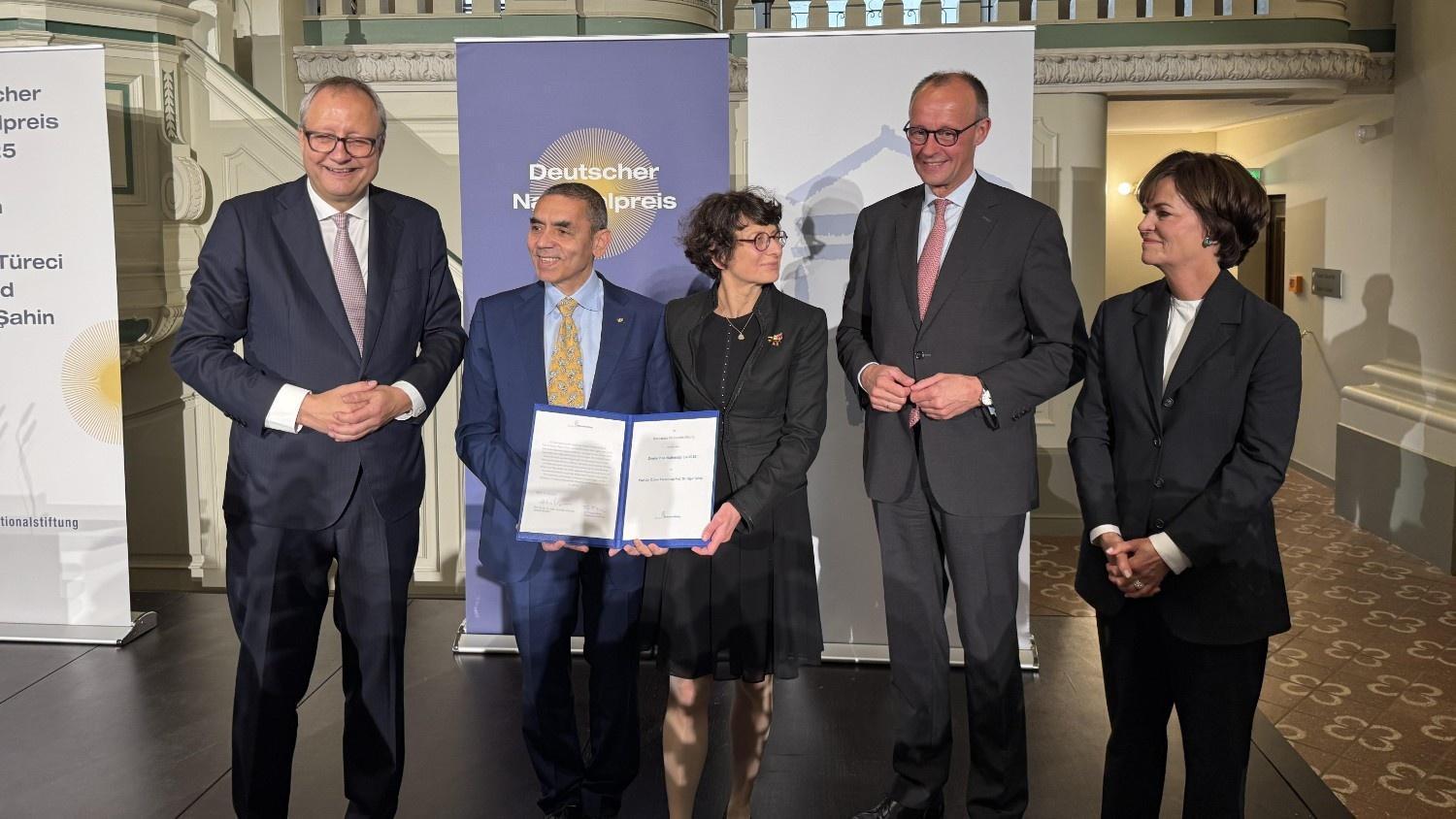BioNTech founders receive German National Prize
BERLIN

The prestigious German National Prize, awarded annually since 1997 by the German National Foundation, has been bestowed this year upon Özlem Türeci and Uğur Şahin, the Turkish-origin founders of the biotechnology company BioNTech.
Türeci and Şahin now take their place among Germany’s historical science figures such as Robert Koch, Rudolf Virchow and Karl Hirsch, Chancellor Friedrich Merz underscored during his speech at the ceremony at the French Friedrichstadt Church in Berlin.
Describing Şahin and Türeci as two pioneers of modern medicine, Merz said they were being honored with the 2025 German National Prize for “their courage in venturing into the unknown.”
He emphasized that the development of a vaccine typically takes an average of eight years, yet BioNTech succeeded in producing the world's first widely available COVID-19 vaccine in under a year — a feat he called a historic breakthrough.
‘1st generation of Turkish immigrants overlooked’
In his speech, Merz also drew attention to the broader significance of Türeci and Şahin’s success as the children of Turkish immigrants.
"Both are children of Turkish immigrants. Türeci's father worked at a small local hospital, while Şahin's father was a guest worker at the Ford factory in Cologne — a member of the labor force that arrived in Germany during the 1960s and 70s and made vital contributions to our country's prosperity," he said.
Merz noted that the first generation of guest workers in Germany has received little recognition to date. He quoted Şahin, who referred to this generation as the "overlooked generation," calling it a perspective that should not be forgotten.
He emphasized Germany's commitment to supporting talent regardless of social or ethnic background, stating, "We need skilled immigrants as drivers of progress. Ideologies that question this threaten the future of our liberal order with their narrow-mindedness."
Şahin and Türeci also delivered speeches expressing gratitude for the award.
The first wave of Turkish migrants arrived in Germany in the 1960s under a labor recruitment agreement between the two countries. Today, approximately 3 million people of Turkish descent still live in Germany.
















